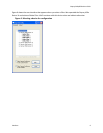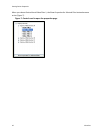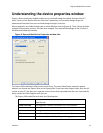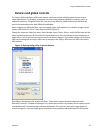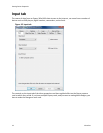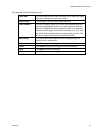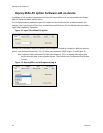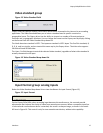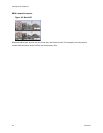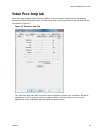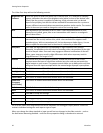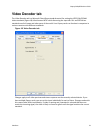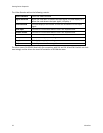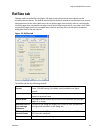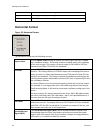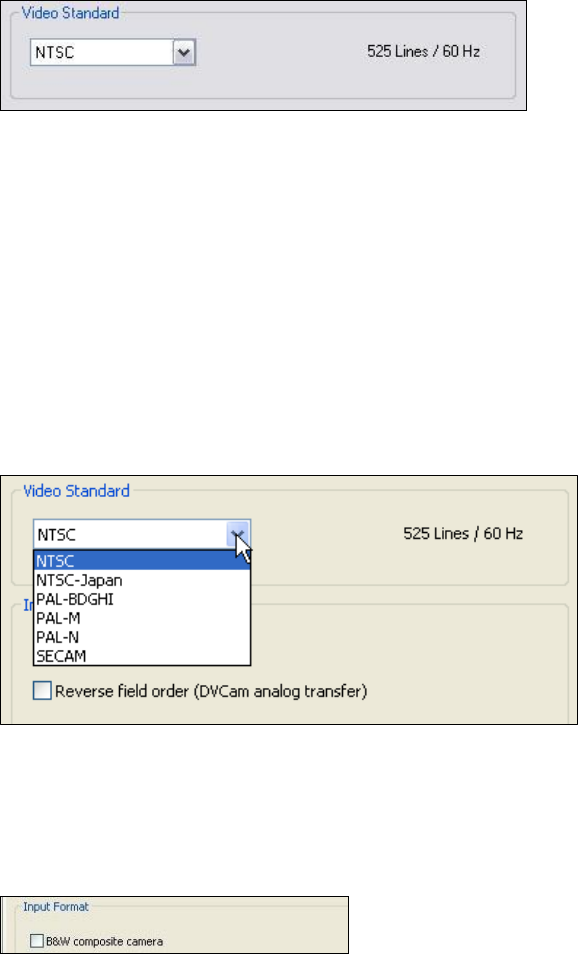
Osprey 240e/450e User Guide
ViewCast 17
Video standard group
Figure 13. Video Standard field
Osprey cards can capture country centric data, which can be streamed to the Internet by an encoding
application. The Video Standard allows you to select a standard used in specific countries or
geographical areas. The Osprey driver has the ability to stream in a number of formats unique to
countries and, or geographic locations. You can change the format on the Osprey card by simply clicking
on the format from the Video Standard drop-down list.
The North American standard is NTSC. The Japanese standard is NTSC-Japan. The five PAL standards, B,
D, G, H, and I are similar, and are treated the same way by the Osprey driver. The driver also supports
PAL-M and N and SECAM video.
The Lines / Hz field changes to match the selected video standard, regardless of what video standard is
actually connected to the input.
Figure 14. Video Standard drop-down list
Input Format group: analog inputs
Below the Video Standard drop-down list are two checkboxes for Input Format (Figure 15).
Figure 15. Input Format
On the Osprey 240e/450e, when an analog input becomes the media source, the controls provide
adjustments that improve the clarity of video from monochrome sources. When a composite input line
is selected and a monochrome device is attached, the result is a sharper image, as shown in the notch
kill item in Figure 16. This control is only for true monochrome devices, without color capability.



